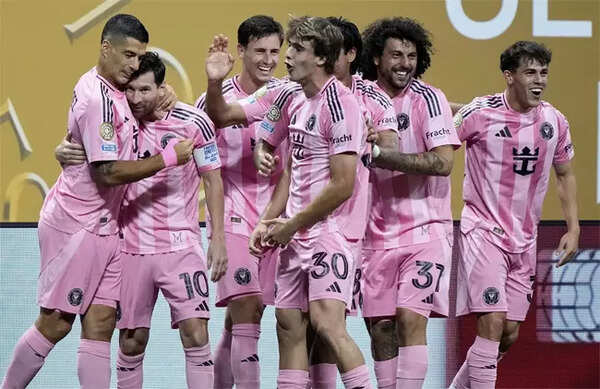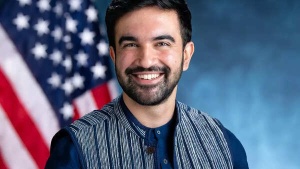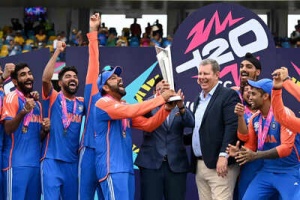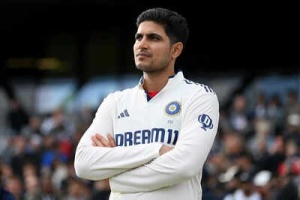The FIFA Club World Cup 2025, with its expanded format, has delivered a series of compelling narratives as it progresses towards the Round of 16. This edition, hosted in the United States, features a revamped structure including more participating teams, a new trophy design, multiple venues, and even the use of referee cameras, bringing it closer in scale and scope to the FIFA World Cup.
Organizers have framed the tournament as "a celebration of hope, excellence, and pride," uniting clubs, players, and fans in their shared passion for the sport. With numerous debutants and a month-long schedule, the competition's profile has been significantly elevated.
Representing all six confederations, the tournament features 12 teams from Europe, 6 from South America, 4 each from Africa, Asia, and North and Central America and the Caribbean, 1 from Oceania, and 1 from the host nation.
With the group stage concluded and the field narrowed to 16 teams, the Club World Cup has showcased its share of unexpected results, underdog victories, and intense confrontations.

Auckland City, ranked 4,971st in the Opta Power Rankings, entered the tournament as the lowest-ranked team. Placed in a group with Bayern Munich, Benfica, and Boca Juniors, their prospects appeared bleak. The team, composed of amateurs playing in New Zealand's Northern League, faced a daunting challenge.
Their campaign began with a humbling 0-10 defeat against Bayern Munich, the largest margin of victory in the tournament, followed by a 0-6 loss to Benfica.
Facing Argentinian powerhouse Boca Juniors in their final match, Auckland City defied expectations. The amateurs, separated by 4,819 ranking points from their opponents, secured a 1-1 draw, denying Boca Juniors a place in the Round of 16.

Despite being drawn into a group with Porto, Al Ahly, and Palmeiras, Lionel Messi and Inter Miami secured a spot in the Round of 16. Led by Messi, alongside Luis Suarez, Jordi Alba, and Sergio Busquets, Inter Miami finished second in Group A.
Although they managed only one win, it was enough to advance. Following a draw against Al Ahly, Miami faced Porto. Messi delivered a remarkable performance, including a stunning free-kick, leading to a 2-1 victory. A 2-2 draw against Palmeiras sealed their place in the next round.
The final matchday in Group E saw tensions escalate as River Plate's Marcos Acuna and Inter Milan's Denzel Dumfries nearly came to blows after their match. The animosity, stemming from a previous encounter three years prior, saw Acuna taunt Dumfries with a reference to Argentina's victory over the Netherlands in the 2022 World Cup quarter-final.
Extreme heat also affected the tournament, with teams resorting to ice baths and cold towels to cool down players. Borussia Dortmund even had substitutes watch the game from the locker room to avoid the scorching heat, with their coach describing the conditions as a "sauna." Thunderstorms caused delays in several matches.
Adding another layer of complexity, U.S. Immigration and Customs Enforcement (ICE) and Customs and Border Protection (CBP) have a presence at the tournament, requiring non-citizens to provide proof of legal status to attend games.
With the 2026 FIFA World Cup, co-hosted by the United States, Mexico, and Canada, less than a year away, the Club World Cup has highlighted potential challenges. Issues such as pitch quality and extreme weather conditions have raised concerns about the upcoming tournament.
Real Madrid's Jude Bellingham criticized the pitch conditions, stating, "The pitches aren’t great here. The pitches aren’t great at all."
Despite the surprises and upsets, the Club World Cup continues to be dominated by European powerhouses. Teams like Real Madrid and Manchester City remain strong contenders for the title. However, several teams including Seattle Sounders, Urawa Reds, Ulsan, Wydad AC and Pachuca were eliminated early.
Newer articles
Older articles
 Samsung Unveils Galaxy A35 5G and A55 5G Prices, Launching with Attractive Deals
Samsung Unveils Galaxy A35 5G and A55 5G Prices, Launching with Attractive Deals
 SA20 Auction: Teams Allowed to Retain Up to Six Players, RTM Card Introduced, and Salary Cap Boosted
SA20 Auction: Teams Allowed to Retain Up to Six Players, RTM Card Introduced, and Salary Cap Boosted
 Mirabai Chanu Reveals Relentless Weightlifting Focus: Family Time Can't Dim Training Mindset
Mirabai Chanu Reveals Relentless Weightlifting Focus: Family Time Can't Dim Training Mindset
 Tottenham Signs Japan's Kota Takai to Bolster Defense
Tottenham Signs Japan's Kota Takai to Bolster Defense
 Political Power Dressing: 5 Style Secrets from New York Assemblyman Zohran Mamdani
Political Power Dressing: 5 Style Secrets from New York Assemblyman Zohran Mamdani
 5 Science-Backed Tiny Habits for a Dramatically Healthier Heart
5 Science-Backed Tiny Habits for a Dramatically Healthier Heart
 FIFA Club World Cup 2025: Upsets, Underdogs, and Heat Waves Define Group Stage as Round of 16 Beckons
FIFA Club World Cup 2025: Upsets, Underdogs, and Heat Waves Define Group Stage as Round of 16 Beckons
 Rohit Sharma Hails Barbados as India Celebrates T20 World Cup Victory
Rohit Sharma Hails Barbados as India Celebrates T20 World Cup Victory
 Gill Needs 'Attitude Adjustment' Warns Haddin After India's Test Defeat
Gill Needs 'Attitude Adjustment' Warns Haddin After India's Test Defeat
 7 Proven Strategies to Help Kids Beat Distractions and Boost Focus
7 Proven Strategies to Help Kids Beat Distractions and Boost Focus